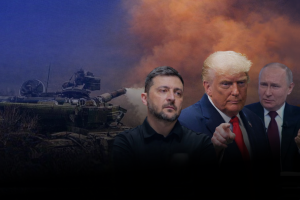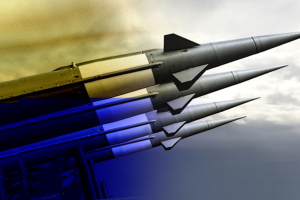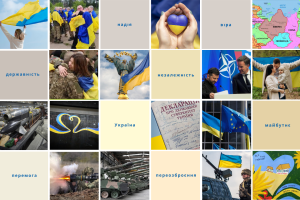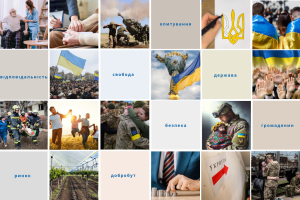Election rankings: May 2018
A nationwide survey of Ukraine had been conducted by the Ilko Kucheriv Democratic Initiatives Foundation together with Sociological Service of the Razumkov Center from 19 till May 25, 2018, in all regions of Ukraine except for the Crimea and the occupied territories of Donetsk and Luhansk Oblasts. 2,019 respondents aged 18 and over were polled. The theoretical margin of error does not exceed 2.3%.
The funding of the survey was carried out within the framework of the "Engage" Civic Activity Program, funded by the United States Agency for International Development (USAID) and implemented by the Pact in Ukraine.
Data of nationwide polling conducted by the Ilko Kucheriv Democratic Initiatives Foundation (with partners) in May 2013, March 2014, December 2016 and December 2017 are provided for comparison purposes.
- The overwhelming majority of citizens (68%) are planning to take part in the presidential elections in Ukraine, while only 17% of citizens clearly do not want to take part in elections (the rest of respondents have not yet decided on this issue). Among the regions, the South is slightly different, where election readiness is considerably smaller - 54%, in comparison to the West, where the readiness to participate in the presidential election is the highest – 76%.
- There are no clear leaders for the presidency among the candidates. Yulia Tymoshenko has the largest support among those who are planning to take part in the elections – 13.3% of voters (with a considerably different level of support in various regions). The next is Anatoly Gritsenko – 9,4% (his highest ranking is in the Western and Central regions), Yuriy Boyko – 8,4% (whose ranking is provided almost exclusively by the East, South and Donbass) and Petro Poroshenko – 7.6% (his ranking is slightly higher in the West and slightly lower in the East), Oleh Lyashko – 7,4% (his position is slightly stronger in the Center and in the South).
- The level of potential readiness to vote in the elections to the Verkhovna Rada of Ukraine is roughly the same as with the presidential election (65%), while 19% of respondents are not inclined to take part in the elections. These results are a bit different in various regions of the country, excluding the South, where citizens are less ready to participate in the elections – 51%.
- The majority of citizens who will go to the polls would vote for such political parties as the Batkivshchyna (12.6%) and the Civic Position party (10.7%). The following: "Opposition bloc" (8.5), "For Life" (8.1%), Radical Party of Oleh Lyashko (7.9%), Party "Petro Poroshenko Bloc" Solidarnist” (7.8%). "Samopomich" (5.1%) and the recently registered party "Servant of the people" (5.0%) will probably also overcome the electoral barrier.
- Party rankings have some regional differences: the support of the Batkivshchyna and BPP Solidarity parties is somewhat lower in the South and East, and the popularity of the the Civic Position party is mainly provided by the West and the Center. Instead, the positions of the party "Opposition bloc" and the "For Life" party are very weak in the West and in the Center.
- Most of the citizens (62%) think that Ukraine needs new political leaders, 27% of citizens do not see this need. The highest demand for new leaders is in the Western region (78%), the least – in the South (46%). In other regions about 60% of citizens are seeking new leaders.
- Only 25% of respondents see concrete individuals as new political leaders, in particular the lowest index is in the South (19%), and the highest one is in the Donbas region (37%).
- Three leaders clearly distinguished in the open question, when the respondents were asked to name the new desired leader: Svyatoslav Vakarchuk (7%), Volodymyr Zelensky (6,6%) and Evgeny Muraev (6%).
- The main qualities that new leaders must have according to the citizens` opinion are primarily resistance to corruption (54%), honesty (46%), and willingness to protect people's interests (45%). Additionally, patriotism and a clear action plan are important for 22% of respondents, education and professionalism – for 16%, leadership presence – for 15%. Respondents most rarely mentioned wealth of a potential leader (1%) and willingness to achieve their goal by any means (4%).
- According to citizens ' opinion, new political leaders can be recruited from: new political forces (33.5%), already existing political parties where they do not hold the top position (30%), from civil society organizations (28%), humanitarian or technical intelligentsia (26%), participants of the ATO in the Donbas region (17%), volunteers (15%). The smallest number of citizens would like new leaders to be representatives of big business (5%).
- The majority of citizens (60%) approve of the prospect of civil activists going into politics, 25% view this negatively. The main reason for such support is the hope that the arrival of civic activists in politics will lead to qualitative policy changes (46%), while another 29% hope that public activists will have a real impact on the situation in the country. The negative attitude to the prospect of public activists going into politics is due to the fact that activists can bring more benefits to society in public activities (13%) and that "they will not be able to become influential politicians without strong financial resources and corruption ties" (13%).
- About 8% of Ukrainians are familiar with the TV program "New Leaders", which has recently started on the ICTV channel, and another 25% have heard about it. At the same time, the potential demand for such a program is quite high – 15% are “definitely” going to watch it, while another 54% – “if it is interesting”.








